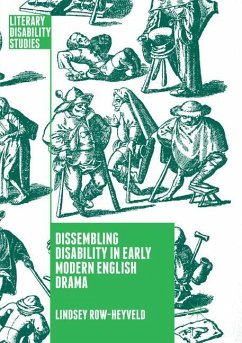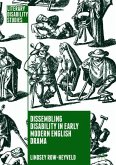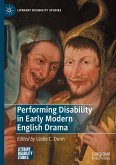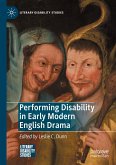Why do able-bodied characters fake disability in 40 early modern English plays? This book uncovers a previously unexamined theatrical tradition and explores the way counterfeit disability captivated the Renaissance stage. Through detailed case studies of both lesser-known and canonical plays (by Shakespeare, Jonson, Marston, and others), Lindsey Row-Heyveld demonstrates why counterfeit disability proved so useful to early modern playwrights. Changing approaches to almsgiving in the English Reformation led to increasing concerns about feigned disability. The theater capitalized on those concerns, using the counterfeit-disability tradition to explore issues of charity, epistemology, and spectatorship. By illuminating this neglected tradition, this book fills an important gap in both disability history and literary studies, and explores how fears of counterfeit disability created a feedback loop of performance and suspicion. The result is the still-pervasive insistence that even genuinely disabled people must perform in order to, paradoxically, prove the authenticity of their impairments.
Bitte wählen Sie Ihr Anliegen aus.
Rechnungen
Retourenschein anfordern
Bestellstatus
Storno








